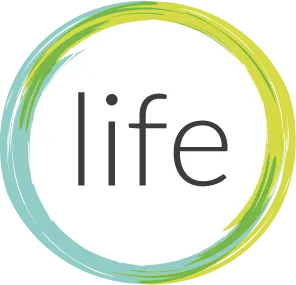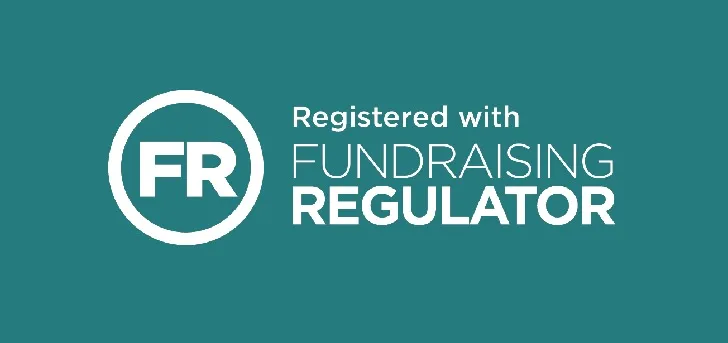Safe and legal fundraising
We want you to enjoy fundraising for Life, so please take the time to make sure your fundraising is safe and legal. We’ve included some tips below.
Contact our Fundraising Team
For any questions on fundraising or on keeping things safe and legal, contact our cheery Fundraising Team on fundraising@lifecharity.org.uk or 01926 312272. They’ll be able to assist you with whatever help you may need.
Terms and conditions
Here’s the legal stuff, so please read this carefully.
When you fundraise for Life, you agree to the following:
- Life isn’t responsible for your fundraising. This means that you fundraise for Life at your own risk and Life has no liability.
- You will only use legal and ethical ways to fundraise for Life.
- You will not bring Life’s name into disrepute while fundraising for Life.
- You will comply with any fundraising requirements Life asks of you.
- Your fundraising will not be covered by Life’s insurance. It’s your responsibility to arrange insurance for your fundraising as you deem appropriate.
Staying safe whilst fundraising
Doing a risk assessment for your fundraiser can help you keep things safe. The Health and Safety Executive has risk assessment templates you can use as well as guidance on how to do a good risk assessment.
In addition to health and safety, please also consider possible risks to Life’s reputation. Use reputable organisations, and contact our Fundraising Team on fundraising@lifecharity.org.uk or 01926 312272 for guidance on whether there could be any problems.
Insurance and public liability insurance
Insurance is your responsibility and Life can’t accept any liability, so make sure your fundraising is covered as appropriate.
Also, make sure that any buildings, equipment, or suppliers that you hire are covered. This is in case someone’s involved in an accident with those.
You may need to arrange public liability insurance for some fundraisers. This protects you against claims made by third parties for injury or damage caused by negligence.
Using contractors and suppliers
If you’re using contractors or suppliers, make sure they’re reputable. Ask to see a copy of their public liability insurance and risk assessment in advance. If anything looks unsafe on the day, stop the fundraiser.
Fundraising with food
If you’re providing food at your fundraiser – no matter how much or how little – please look at the Food Standards Agency website and follow their guidance. You may find these pages particularly helpful:
First aid
You may need to have first aid cover at your fundraiser. St John Ambulance or the Red Cross will be able to advise you and can also provide first aid support for your fundraising.
Handling cash
When collecting cash or payments, make sure that the cash is secure – for example, by putting it in a locked box.
Where possible, have two people around to count or transport cash.
Pay in your cash as soon as possible after your fundraising, either to Life or to your bank in preparation for sending to Life.
If you’re transporting cash, use busy and well-lit routes. Try to conceal the cash while transporting it.
If you’re ever confronted by someone demanding the cash, your safety is the priority – just hand over the money and don’t put up a fight. Report the incident to the police as soon as possible.
If you’re fundraising and under 18
If you’re under the age of 18, you’ll need to get permission from a parent or guardian to raise money for Life.
Photo permissions
If you plan to take and use photos or videos publicly of other people at your fundraiser, please make everyone aware. You can do this either by putting posters up, telling them beforehand, or at the fundraiser itself.
If you provide photos or videos to Life in connection with your fundraiser, we’ll assume that we can use them on our website and social media channels unless you tell us otherwise.
Raffles
Raffles are a great way to raise funds, but get to know the legalities beforehand. Find the latest advice and guidance at the Gambling Commission.
Licensing and permits
You may need a licence or permit for your fundraiser. Your Local Authority or council website should detail which fundraisers need a licence or permit and how to apply.
The UK Government site also has some guidance on licences and permits. They also have a page on entertainment licensing.
Public collections
If you’re collecting money on private property, you’ll need permission from the landowner. For example, if you’re collecting at a train station, you’ll need permission from the train station manager.
If you’re collecting in a public place – such as on the street – you’ll need a licence from your Local Authority or council. They’ll also have useful advice about carrying out your collection.
Data protection
Make sure that any data you keep about people involved in your fundraiser complies with data protection law. The basic points are that you shouldn’t share people’s personal data without their permission and you shouldn’t keep people’s personal data any longer than you need to. You can find more information at the Information Commissioner’s Office.
Further guidance
You can find more information on organising your fundraiser from the Fundraising Regulator, the Institute of Fundraising, and the UK Government.
And, once again, we’re a friendly bunch and would love to help. Contact the Fundraising Team on fundraising@lifecharity.org.uk or on 01926 312272.
You may also be interested in
Get involved and take part in events that raise money for Life – all while having an excellent time!
Partner with us financially to help people meet pregnancy or pregnancy loss with courage and dignity.
Learn new skills, make friends, and get that warm glow knowing you’re making the world a better place.








